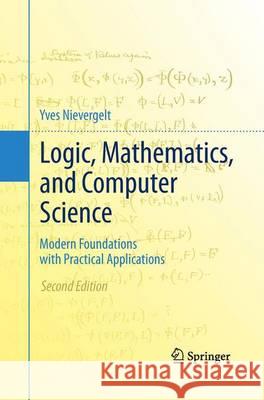Logic, Mathematics, and Computer Science: Modern Foundations with Practical Applications » książka
topmenu
Logic, Mathematics, and Computer Science: Modern Foundations with Practical Applications
ISBN-13: 9781493937134 / Angielski / Miękka / 2015 / 391 str.
Kategorie:
Kategorie BISAC:
Wydawca:
Springer-Verlag New York Inc.
Język:
Angielski
ISBN-13:
9781493937134
Rok wydania:
2015
Wydanie:
2015
Ilość stron:
391
Oprawa:
Miękka
Wolumenów:
01











